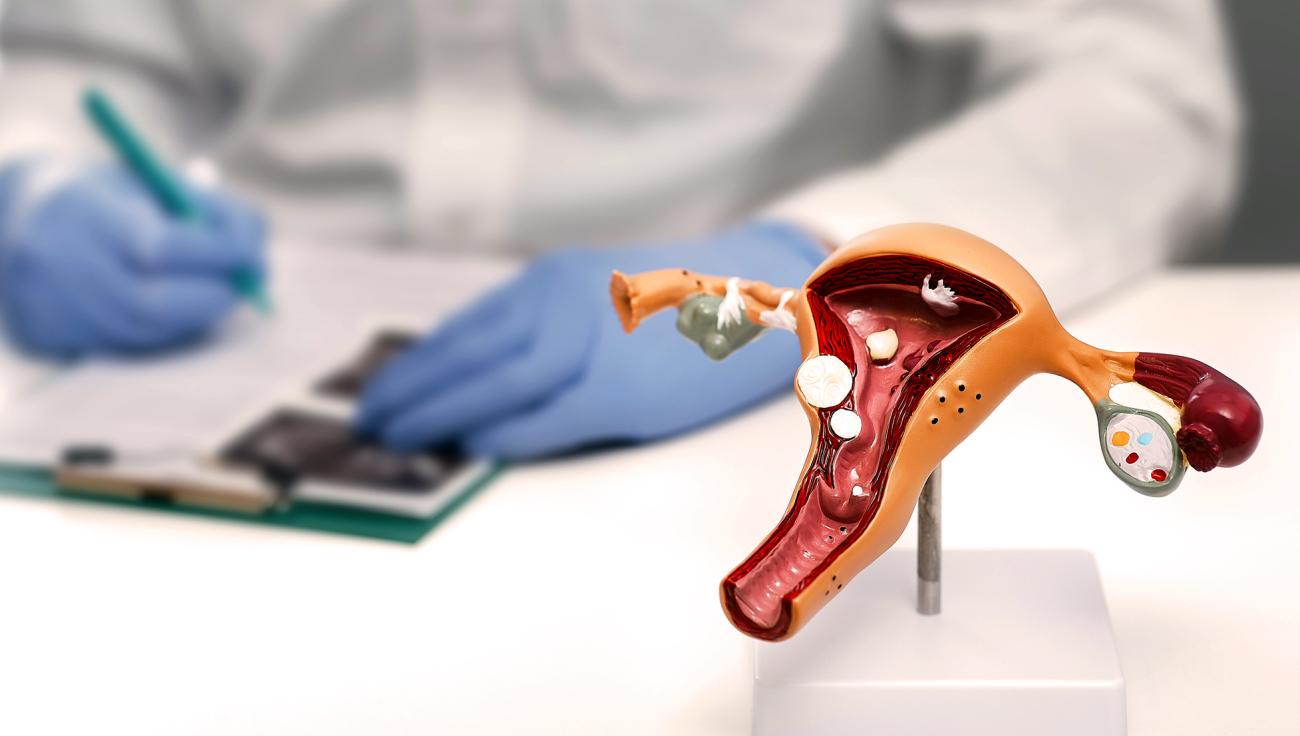
News release | Study results suggest that ovarian cancer can be prevented by opportunistic salpingectomy.
Vancouver – B.C. scientists published new research today in JAMA Network Open showing that removing a person’s fallopian tubes at the time of other routine gynecologic surgeries is a safe, effective way to reduce ovarian cancer risk, ultimately leading to lives saved.
The procedure, called opportunistic salpingectomy (OS), takes advantage of an opportunity to remove the fallopian tubes when a person is already undergoing hysterectomy or instead of tubal ligation — often referred to as “having your tubes tied” — while leaving the ovaries intact.
This ovarian cancer prevention strategy was developed and named by Dr. Dianne Miller, OVCARE co-founder, gynecologic oncologist at Vancouver Coastal Health’s Vancouver General Hospital and BC Cancer, and associate professor emerita at the University of British Columbia (UBC). This novel change in practice, led by B.C., has since been adopted and recommended by many professional gynecological societies around the world.
“Though it's great to cure cancer or improve outcomes, it's even better to never get cancer in the first place and that’s what this ovarian cancer prevention strategy is all about,” said Miller.
In recent decades, scientists have discovered that most cases of the most common and lethal type of ovarian cancer — high-grade serious carcinomas (HGSCs) — arise in the fallopian tubes that transport eggs from the ovaries to the uterus. The new research reveals how removing the fallopian tubes with OS can help save lives by preventing HGSCs, which have a five-year survival rate of less than 50 per cent. Approximately 70 per cent of ovarian cancers and nearly all ovarian cancers in people with a BRCA mutation (Breast Cancer gene mutations) are HGSCs.

“The study found significantly smaller numbers of observed ovarian cancers compared with expected numbers for patients who underwent prophylactic OS at the time of hysterectomy or instead of tubal ligation,” said Hanley, research scientist at the Vancouver Coastal Health Research Institute. “There was not a single serous ovarian cancer in the OS group, which was significantly fewer than the slightly more than five that were expected.”
These findings strengthen the evidence for presenting OS as an option to individuals at average risk of ovarian cancer. The study further showed that the OS group had the same risk of breast and colorectal cancers compared with the control group, indicating that the reduction in ovarian cancer within the OS group is probably due to the removal of their fallopian tubes.
“As physicians who care for women with ovarian cancer, we would obviously prefer no women to be diagnosed with this deadly disease,” noted Dr. Sarah Finlayson, gynecologic oncologist, Vancouver General Hospital and BC Cancer, and clinical associate professor at UBC. “To see proof that this cancer can be prevented by OS is thrilling.”
The average age of diagnosis of ovarian cancer is 61. Many of the study participants underwent OS in their 40s, and as these participants age, the researchers expect that the number of cancers prevented will grow to 37 women in 2022 and 45 by 2027. Many more people have since had OS who were not included in this study, increasing the impact of this intervention further.
“My mom was 66 when she died of ovarian cancer and my grandmother died at the age of 52 of ovarian cancer. My mom didn’t have a BCRA gene, but the geneticist thought the odds were just too great so I was recommended to undergo OS,” said Justine Greene, a patient partner in ovarian cancer prevention. “I was 39 at the time when I had my tubes removed. I had a son and I was done having children so OS seemed like a no-brainer. It just seemed like the family story of ovarian cancer in my family needed to stop and that’s why I did it.”
Measures:
- This research involved a population-based retrospective cohort study of all individuals in British Columbia who underwent OS or a control surgery (hysterectomy alone or tubal ligation) between 2008 and 2017, with follow-up until December 31, 2017.
- All individuals who underwent a hysterectomy or tubal sterilization between 2008 and 2017 were included.
- Those with any gynecological cancer diagnosed before or within six months of their procedure were excluded.
- There were 25,889 individuals in the OS group, consisting of 14,066 who underwent hysterectomy with OS and 11,823 who underwent OS for sterilization.
- There were 32,080 individuals in the control group, consisting of 10,446 individuals who underwent hysterectomy alone and 21,634 who underwent tubal ligation.
“This result is the culmination of ten years of team science and we look forward to working together to maximize the impact of this program and to further improve our prevention tools through better understanding the origins of all ovarian cancers,” said Dr. David Huntsman, scientific lead for OVCARE and professor at UBC.
This research was supported by funding from the Canadian Institutes of Health Research, Canadian Cancer Society, Michael Smith Health Research BC, VGH & UBC Hospital Foundation, and BC Cancer Foundation.
A video on opportunistic salpingectomy:
Learn more:
- For more information about ovarian cancer, visit BC Cancer’s ovarian cancer webpage.
- Learn more about ovarian cancer research at Vancouver Coastal Health.
- Find out about the OVCARE partnership.
- Register for a public online webinar to learn about the latest advancements in OVCARE on March 8.


